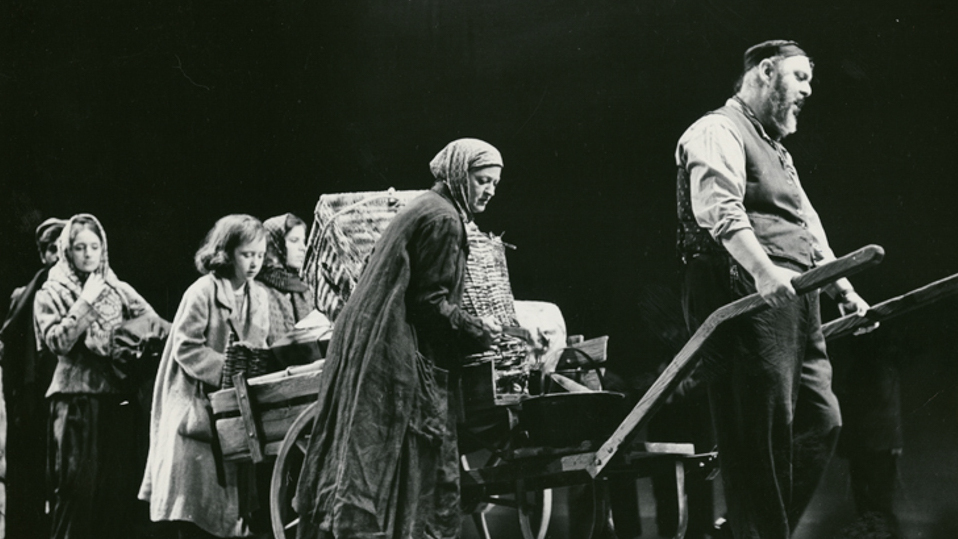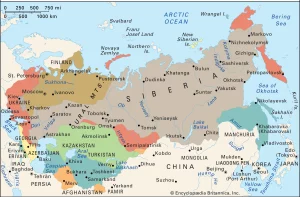
Fiddler on the Roof – leaving Anatevka
On the boats and on the planes
They’re coming to America
Never looking back again
They’re coming to America
What is the difference between an immigrant and a refugee? I pondered this question while writing my story.
Neil Diamond, the son of Jewish immigrants who fled from Poland and Russia, wrote this song in 1980. At one point a national poll found “Coming to America” to be the single most recognized song about America, even more so than “God Bless America” (a song by another Russian-Jewish immigrant, Irving Berlin, born Israel Beilin).
What is the difference between an immigrant and a refugee? I pondered this question while writing my story. Looking up both words, I found that an immigrant is simply defined as anyone who leaves one country to settle in another. The motivation isn’t relevant to the term. A refugee is someone who has been forced to leave because of war, violence, or persecution, often without warning. In Fiddler on the Roof the villagers were warned by the Russian constable to leave within three days, and if they had not left, they would have been killed, just because they were Jewish. The featured image shows Tevye and his family as refugees leaving Anatevka with all their possessions piled on a cart that he is pulling.
All four of my grandparents were refugees. They all came to this country between 1900 and 1910 from different places in Russia. (Note that Fiddler took place in 1905.) My grandfathers were leaving to avoid being conscripted into the czar’s army, and all of them were fleeing from Cossacks and pogroms and the terrors of anti-Semitism. Whole shtetls (Jewish villages) could be wiped out by soldiers or even civilians who felt like killing Jews, knowing that the czar had given his tacit consent.
My maternal grandfather came from Pinsk, in what is now Belarus, by himself, when he was about 17, in 1905 or 1906. My maternal grandmother came from in or near Kiev (or Kyiv), in what is now Ukraine, with her parents and siblings, when she was about 10 or 12, possibly in 1908. They met in New York. My paternal grandfather came from Latvia, where he was a research chemist, in 1903, and my grandmother from Minsk, also in Belarus, where she was a midwife, in 1905. They met in Philadelphia. When I was growing up, I was always told that all of them had come from Russia. In my junior high school Civics class, when we were studying immigration, and we went around the room saying where our ancestors had immigrated from, I caused quite a stir by saying “Russia.” This was during the Cold War, after all.
It was only this week, while writing this story, that I learned why we always referred to that entire region as Russia. In an article about Irving Berlin, it said “Born in Imperial Russia, Berlin arrived in the United States at the age of five.” Aha! Imperial Russia! Also known as the Russian Empire, and covering much of Eastern Europe and Asia, that entity existed from 1721 until Czar Nicholas II abdicated in 1917. So when my grandparents lived there, it was all Imperial Russia. That explains something I’ve wondered about for decades!
In Judaism we are taught that because we were strangers in Egypt, we should care for the stranger. Because we had to flee from persecution, we should help the refugee. HIAS, a humanitarian organization that used to be called the Hebrew Immigrant Aid Society, plays a major role in giving aid and assistance to refugees of all religions and nationalities. (When my mother died, we suggested that people who wanted to honor her memory contribute to either HIAS or Planned Parenthood.) The motto of HIAS is “Welcome the stranger. Protect the refugee.” Right now they are helping Ukrainian refugees who are fleeing from the Russian invasion of their country. More than five million refugees have left Ukraine since February of this year. But when I think about Ukrainians, I can’t help thinking that these are the people who tried to kill my ancestors. Okay, they are the descendants of the people who tried to kill my ancestors. I know that Volodomyr Zelenskyy, the current president of Ukraine, is Jewish, but I also have been told that even today, Ukrainian Jews are issued passports that list their nationality as Jewish, not Ukrainian. The roots of anti-Semitism in Ukraine are very deep. So I feel conflicted. But I still donate to HIAS and let them decide which refugees they will help.
- * * * * * *
For more about my maternal grandparents, who lived with us when I was growing up, see Those Were the Days, My Friend (their whole story), Which Side Are You On? (their pursuit of the American dream), and No Way To Say Goodbye (my grandfather’s death).




Thank you for sharing this story of your family, Suzy. Amazing — though, as I consider it, probably not surprising — parallels to my own family history. And like me, you also ponder the differences between immigrants and refugees.
As to the parallels, they are quite clear — involving as they do Russia, Ukraine/Kviv and Belarus. And, of course, the overarching force of Russian anti-semitism. It is also clear just how important the year 1905 was in terms of our families’ exodus. (And thank you for informing me that “Fiddler” takes place in that year as well.)
Finally, thank you for planting “Coming to America” in my head as this week’s earworm. But, while humming it, I will be thinking of it in a whole different light than when it came out in 1980.
Most of us Ashkenazi Jews have similar stories. I look forward to reading yours. The song has been running through my head all week, although it took me until yesterday to figure out how this story was going to go.
Your differentiation between immigrant and refugee is interesting and relevant to the prompt today. Thank you for that clarification.
Like so many of us, all your grandparents came from “Imperial Russia” (good designation). That part of Russia was also called the Pale of Settlement, the only place Jews were allowed to live. They were not allowed to own land so were merchants or professionals. And, as hatred towards them was codified into pogroms, they fled, mostly to the US, as your grandparents (and mine) did. Thank you for all this information.
I understand your ambivalence toward Ukraine, given their historic hatred of the Jews. Yet, we are taught to care for the strangers and displaced, which is what HIAS does. So your mission continues.
Thanks for your insightful comment. You’ve given me a new research project – the Pale of Settlement. I’ve heard that term before, but don’t know much about it.
That was interesting about “Imperial Russia”—I suppose that is what Putin is trying to recreate. And I can understand mixed feelings about the history of the Ukraine (hey, Putin’s theory is they are still all Nazis), as well as the need for refugee support, regardless of political settings—and children make up a huge percentage of refugees worldwide. It sounds as if HIAS is doing good work.
I have wondered about Putin’s theory that they are all Nazis. Not that I would take his word for anything, but there may be some truth to it.
We hail from similar backgrounds, Suzy. My grandparents were all from Lithuania, which I assume was part of Imperial Russia. I used to say I had Russian heritage because most people had no idea where Lithuania was when I was growing up. Sadly, we are all more aware now.
Laurie, did your grandparents say it was Russia that they came from? I know mine did. They spoke Russian in addition to Yiddish In “the old country” – not Ukrainian or Belarusian or Latvian (at least as far as I know).
I’m no expert, but Ukraine does have a history of corruption and right-wingers (as does the US), some of which have identified with Nazi ideas at times. The current government is a change, and strives to be a more tolerant democracy. In any case, Putin’s claim is convenient propaganda that taps into old tropes. And the imperial designs and wanton bloodshed are neither humane nor warranted.
Of course.
Thanx for your wonderfully written and thoughtful story Suzy.
I always did distinguish immigrants from refugees, the latter being those urgently seeking refuge from danger or devastation. All my grandparents came from Eastern Europe at the turn of the 20th century when conditions for Jews were precarious, so I guess they were refugees. Of course decades later during the Nazi terror, for those seeking refuge – like my husband’s parents – the danger was more imminent and blatant.
And as you were puzzling over Russia vs Imperial Russia, when writing about my grandfather Henry today , I was puzzling over his nationality. I’d always understood he was born in 1889 in the town of Obertyn in Austria. But googling it I discovered that altho Obertyn had been part of the Austrian Empire in the 1880s, it’s now part of Ukraine.
And thanx for the Fiddler on the Roof reference – what a wonderful and moving show.
How interesting about Obertyn. Did Henry consider himself Austrian? Or Russian? Or just Jewish, which was probably considered to be their nationality as well as their religion.
I was always told he identified himself as Austrian as Ubertyn was then part of the Austro-Hungarian Empire, but perhaps as you opine, he thought of himself first as a Jew.
I both admire and am amazed at the way the Jewish people can live (and treat others) according to the humanistic tenets of their faith despite what has been done to them in the past. I am not sure that I could avoid feeling at least some spite and hatred toward those (or even their descendants, I am ashamed to say) who had tried to wipe my particular subset of humanity out of existence!
So you can understand why I feel conflicted about Ukrainian refugees!
Fiddler on the Roof was a masterful blend of joy and sorrow (as I recall it), but your featured image of Tevye and his family dispossessed and trudging in search of refuge doesn’t leave much space for joy. Oy, it looks grim.
Well, they went to America, so the story goes, so everything turned out okay.
What a wonderful entwine between the personal and the historical. You succeeded in using the depth of understanding you have for your own family and your immigrant ancestors to craft a comprehensive and moving survey of those who carry the burden of the immigrant experience, the refugees. And thanks for the geography lesson via that remarkable map!!!
Thanks, Charlie. That map IS remarkable. I forget what all the different colors signify, but everything that is in any color was part of the Russian empire.
“CTA” is just about the best song ever. Rousing and joyful. Now it will be resonating in my head for hours!
Interesting, your thoughts on the Ukrainians. Looking back, I have to say that my forebears would have been at each other’s throats, e.g., the starvation of the Irish by the English. I choose to believe that out of atrocity can come good, eventually (with movement to different parts of the world et al). I struggle to forgive some really nasty destroyers in my own life. It’s hard, to be sure, but it’s necessary, I think.